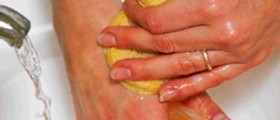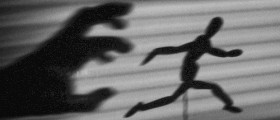
Body dysmorphic disorder is a mental disorder characterized by permanent thinking and obsession about a flaw with one's appearance. This flaw is either minor or sometimes even imagined. The affected individual is so obsessed with a flaw that he/she refuses to be seen by anyone. Such individuals often opt for numerous cosmetic procedures in order to 'fix' their flaws and achieve perfection in their appearance. The condition is rather complex and severe and requires medications and cognitive behavioral therapy.
Body Dysmorphic Disorder Clinical Characteristics
People suffering from this disorder are preoccupied with their physical appearance. They are also persuaded that they look ugly and that other people take special notice of their appearance in a negative way. There is a constant need to be reassured by others in their appearance. Such individuals also undergo many cosmetic procedures with little satisfaction.
Furthermore, people suffering from body dysmorphic disorder often avoid social situations, compare their appearance with that of others and may wear excessive makeup or clothing to camouflage 'noticeable' flaws.
There is a general obsession with one particular part of the body. Sometimes there are a few different body regions they are not satisfied with. What Causes Body Dysmorphic Disorder?
There is usually no single cause of this mental disorder. So in majority of patients the condition develops as a result of a combination of different factors. For instance, one of contributing factors may be the change in brain chemicals i.e. neurotransmitters. In some individuals there are obvious structural brain differences. Furthermore, some studies have shown that this mental condition affects more people with family members who are also suffering from body dysmorphic disorder. Finally, the condition is closely related to life expectancies as well as culture particularly if these are associated with negative experience regarding self image of a person.
Body Dysmorphic Disorder Treatment
The condition can be treated and brought under control with cognitive behavioral therapy and some medications.
Cognitive behavioral therapy for body dysmorphic disorder is of major importance for adopting healthy behavior and eliminating inadequate social and obsessive behaviors. Such therapy is additionally beneficial for identifying one's feelings, thoughts and mood. One eventually learns how to eliminate negative thoughts and starts seeing himself/herself in a more realistic and positive way.
As for medications, such patients may be prescribed different drugs like SSRIs (selective serotonin reuptake inhibitors) or antipsychotic medications which generally depend on whether the condition is associated with some additional mental disorders.
Finally, in most severe cases patients must be hospitalized in a psychiatric facility and be closely monitored.












-Causes,-Symptoms,-Diagnosis-And-Treatment_f_280x120.jpg)




Your thoughts on this
Loading...